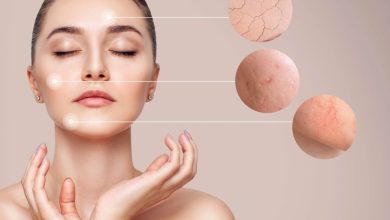10 Ways To Live A Healthier Lifestyle

It’s a common misconception that getting fit involves just eating right and exercising. In reality, maintaining a healthy lifestyle isn’t just about these two factors. It’s also about having a positive attitude, strong mental health, and a positive self-image.
Healthy habits reduce your risk of getting sick, whether it’s cancer, heart disease, or diabetes. However, maintaining a healthy lifestyle requires constant effort.
Despite the abundance of information available on how to achieve a healthy lifestyle, here are some basics for how to maintain a healthy lifestyle, body weight, and overall health.
- Regular health checkups
Despite following a basic health schedule, it is possible to catch diseases due to external factors. Often, employees who work in enclosed environments with toxic substances can catch diseases that are not immediately apparent.
Regular health check-ups can detect health issues at an early stage. Treatment is more likely to be effective when problems are detected early.
If you or someone you know has worked in the navy, get it diagnosed and visit a specialist. Mesothelioma doctors are experienced in this disease and can create treatment plans to help patients live longer.
Many factors influence the frequency of your checkup, including your age, your family history, and how you live your life.
- Increase your water intake
Despite the fact that our bodies need water to function properly, most of us don’t drink enough water each day. Our bodies require water to carry out their functions, remove wastes, and transport nutrients and oxygen.
Our bodies lose water constantly through sweating, urination, and breathing, which means we must replenish it continuously. In general, an adult needs two to three liters of water each day, depending on a variety of factors.
You can tell if you’re getting enough water by the color of your urine — ideally, it should be pale yellow or colorless.
- Reduce intake of harmful fats
It is not wrong to recommend a healthy, nutritious diet, but many people cannot adhere to it. Some can’t afford it financially, while others can’t afford to prepare it and follow it consistently. If you are unable to follow a healthy diet plan, for whatever reason, you can at least try to avoid the disruptive one.
Avoid consuming fats at all costs. Your total energy intake should not exceed 30% fat. By doing so, you will be able to prevent obesity and NCDs.
It is better to consume unsaturated rather than saturated or trans fats. It is recommended that saturated fats be reduced to less than 10% of total calories consumed; trans fats are reduced to less than 1% of total calories consumed, and unsaturated fats are replaced with saturated fats.
A variety of fried and baked foods, as well as snack and food products that are prepackaged, such as frozen pizzas, cookies, biscuits, and condiments, contain trans-fats.
- Be active
Any movement that requires the release of energy is considered physical activity. Work, play, household chores, travel, and recreational activities are included.
It depends on your age group and how much physical activity you need, but adults between 18 and 64 should do on average 150 minutes of moderate-intensity physical activity per week. Get 300 minutes of moderate-intensity exercise per week to improve your health.
- Stay away from Alcohol and Smoke.
Drinking alcohol is not safe at any level. There are several health problems that can be caused by alcohol consumption, including mental and behavioral problems, alcohol dependence, cancers, heart disease, and injuries caused by road accidents.
In addition to lung disease, heart disease, and stroke, smoking tobacco causes NCDs. Besides direct smokers, tobacco exposure also kills non-smokers.
Smokers can still quit if they wish. As a result, you will benefit both immediately and in the long run. If you’re a non-smoker, defend your right to breathe tobacco-smoke-free air.
- Maintain proper hand hygiene
Everyone should practice good hand hygiene, not just health workers. It is possible to keep infectious diseases at bay by keeping your hands clean. You should wash your hands with soap and water or use an alcohol-based hand rub whenever your hands are visibly soiled.
- Observe traffic laws
Millions of people are injured in road accidents around the world, and over a million people die as a result. Governments can prevent road traffic injuries by enforcing laws, implementing safer infrastructure and vehicle standards, and improving post-crash care. You can also prevent road crashes by adhering to traffic laws, such as wearing a seatbelt for adults and child restraint for children, putting on helmets when motorcycling or bicycling, and never driving under the influence.
- Take multivitamins
In the absence of a variety of vegetables and fruits at home, taking a daily multivitamin supplement is a good idea to ensure you have sufficient nutrition. The immune system relies on many micronutrients, including B vitamins (A, B6, B12), C vitamins (C, D, and E), and minerals like zinc, iron, copper, and selenium. However, there’s no scientific evidence as of yet that supplements can protect you against the virus or improve recovery. In fact, the intake of too many vitamins can be harmful in some cases.
- Keep your stress under control
Numerous illnesses, such as migraines and heart problems, are associated with stress. Watch a funny movie, paint, take a long walk, work in the garden, listen to music, or soak in a bubble bath to relieve stress.
Talking to friends and family members is another effective way to release negative thoughts. You can relieve tension and stress by sharing your feelings with people you trust.
- Sleep enough to stay healthy
Sleep plays a crucial role in maintaining the immune system. Sleeping between seven and nine hours strengthens and heals your body. A good night’s sleep is also essential to your physical and mental well-being.
Conclusion
If you make a few simple changes to your lifestyle, your doctor will give you a clean bill of health. Small changes can have a profound effect on your health, well-being, and quality of life, regardless of what you do or how you feel.



